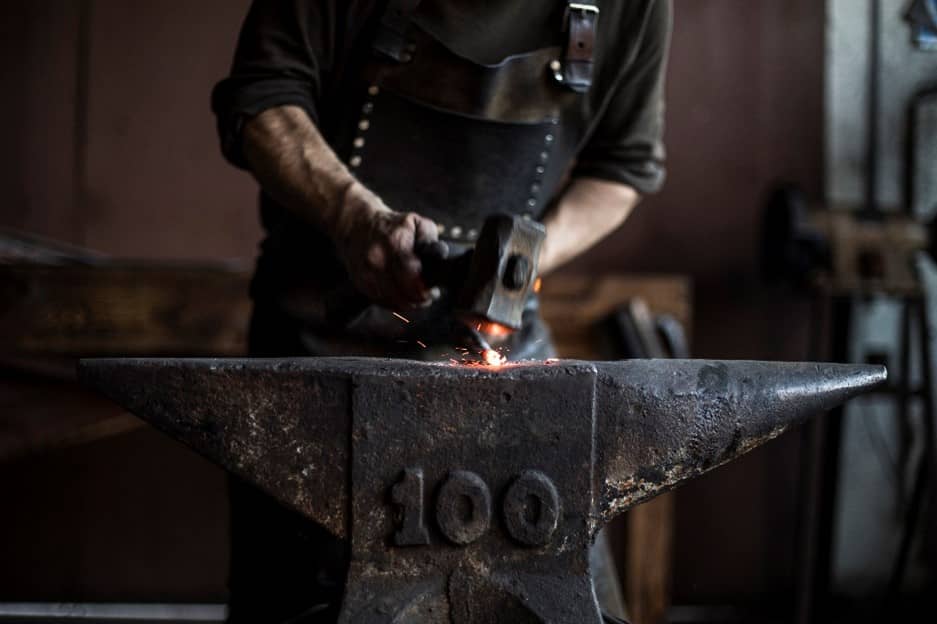
The world is facing a crisis. I’m not talking about climate change, political unrest, or economic instability. I’m talking about a staffing problem. The news and social media are filled with posts describing a shortage of people willing to work in skilled trades across all industries. Even the Bureau of Labor Statistics Fastest Growing Occupations list contains very few “skilled labor” jobs.
If you’ve been to a power plant, tried to hire a home contractor, or made a vehicle repair appointment, you probably heard “We’re short-staffed” or “We can’t find anyone who wants to work” more than once. With 6.1 million people unemployed currently in the United States, why is every industry having trouble filling positions?
The idea of the “Skills Gap,” the lack of young people willing or able to work skilled labor, jobs vital to the very infrastructure of our society, is nothing new. In previous blogs, we addressed the aging workforce and the lack of people available to replace those about to retire. Power Generation is not the only industry struggling. Mike Rowe, of “Dirty Jobs” fame, has beaten the drum of a lack of skilled tradespeople in construction and infrastructure through television, social media, and even Congress. My father, Pete Meier has addressed the Skills Gap in the automotive industry through his work for MotorAge Magazine. To employers, it is a BIG problem.
So why is there a gap between skilled labor positions and those willing to fill them? Well, that depends on who you ask. Some suggest the lack of interest in skilled trades is the result of Baby Boomers teaching their kids (now referred to as “millennials”) that skilled trades were dead-end “dirty jobs.” Many of us remember being told that if we didn’t go to college and get a white-collar office job, we’d be poor and unhappy. Others point out employers take advantage of high unemployment rates to skimp on pay and benefits.

In my experience, the truth is somewhere in the middle of both opinions. My Dad was an auto mechanic and worked long hours to provide for our family. Like most parents, he stressed to me the importance of an education to have it better than he did. The difference is he taught me that education was important in whatever field I decided to enter.
America has seen a shift from the appreciation of skilled trades. Shop classes and Vo-Tech programs largely disappeared from the late 1980s through the early 2000s. At the same time, colleges began offering more “degrees” in arguably useless subjects. Many blame the current skills gap and student debt crisis on the misguided push of a college education as the only way to have a happy and successful life.

A common argument is that employers ask too much of applicants in terms of experience for entry-level jobs. A quick search of job postings in any industry will show that this argument does have some truth to it. Many employers require a minimum of a bachelor’s degree or 5 or more years of experience in the field, even for entry-level positions.
When building training and qualification programs for power plants, most plant managers have said they only hire workers with previous experience. This way of thinking creates its own set of problems. One, you limit the pool of candidates you can hire from significantly; and two, you have to make your position more appealing than the one they currently hold.
Why are employers being so picky, when they have staffing problems? The short answer is they don’t want to risk the time and money training them. Due to budget constraints and staffing shortages, they don’t think they can waste effort on someone who might fail.
When you add a lack of skills training and interest in young people, with unrealistic requirements from employers, you’re left with a big problem. So how do we Bridge the Skills Gap?
The most difficult task of Bridging the Skills Gap is showing young people that a career in skilled trades, specifically in power plant operations, is not a bad thing. The average salary of a power plant operator is between $43,000 and $85,000 a year, compared to the median salary of all jobs in the United States being $45,000 a year. The selling point? Most jobs with a salary greater than $40,000 a year require a minimum of a 4-year degree.
The other stereotype of skilled trades, especially power plant operations, is that the work is hard and not enjoyable. Most people think that operating a power plant is dangerous, back-breaking work. So how do you get people interested in the job and beat the staffing problem? Show them the reality.
Many power plants have benefited greatly from community outreach programs. Many companies have raised interest by speaking at schools and job fairs, hosting tours of the plant, and participating in community relations, A lot of younger operators I have worked with (myself included) didn’t know anything about the job until we started working on it. Outreach can overcome the stereotype that power plant operations are an underpaid and overworked profession with no long-term benefits.

The most under-utilized tool in bridging the skills gap is training. Building an effective training program removes the need to hire only experienced operators. A good training program will teach you the skills you need while building experience. A perfect example of this model is the military. The military has perfected building skilled workers from scratch through training.
The first step is to build a training program that allows you to bring a person off the street and provide them with the knowledge you need. This begins with a Skills Gap Analysis, where you identify the skills needed to meet your operational goals, the skills you currently have, and what gaps exist. Fossil Consulting Services (FCS) specializes in identifying the required skills (Job-Task Analysis) and developing training and qualification programs to fill those gaps.
The second step is to recruit potential candidates. Internship programs are a great way to find potential employees. Community outreach programs will spark interest in the field, and developing an effective internship and training program will allow you to recruit young, inexperienced candidates and build them into the employees that you need to sustain your organization.
Most skilled trades have started to adopt internship or apprenticeship programs. By working with local high schools, community colleges, and hiring agencies, many trades have created programs where a student works for the plant as part of their class, gaining valuable experience, and piquing their interest in the field. Successful candidates often secure positions within the plant following completion of the program.
This CNBC article highlights schools holding “Career Signing Days” celebrating students who have completed trades programs and accepted skilled trades jobs. Programs like the North Carolina Automotive Apprenticeship provide opportunities for employers to work with local schools to recruit talent.
There are two benefits to this program. The student gets exposure to the job and can see the benefit, before wasting time and money on an education they won’t use. Employers get to train and evaluate candidates before hiring them. Both avoid the financial risk of hiring an unqualified candidate only to find out later they aren’t cut out for the job.
The Skills Gap is a real problem. Our entire society functions because of the work of skilled workers. Unfortunately, this work often goes unnoticed. Modern society fails to see the value provided by skilled workers until things stop working. The good news is we can change that. Rising college costs and the Skills Gap leaves us with young people who need a career, and jobs that need to be filled. We just have to bridge the skills gap.
Do you have unfilled positions? Can’t find good people to fill them? Let FCS help you design and build a training and qualification program that will create the skilled workforce you need to be successful.
Consider adopting an intern or apprenticeship program. Work with your community to show off how exciting a career in power generation is. Host plant tours, participate in career days, and spark interest in the young people. Together we can break the stereotype and bridge the skills gap.
To find out how FCS can help you build skilled operators and improve your performance, check us out at www.fossilconsulting.com